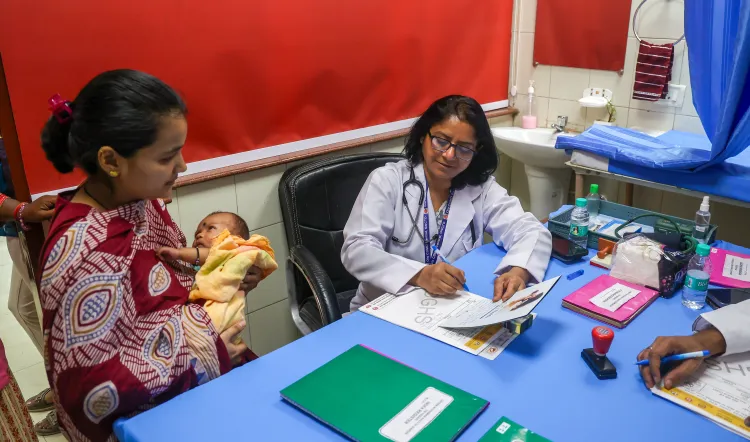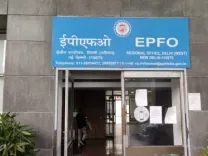How Have 16,912 Jan Aushadhi Kendras Impacted Citizens' Savings?

Synopsis
Key Takeaways
- 16,912 Jan Aushadhi Kendras operational as of June.
- Citizens saved Rs 38,000 crore over 11 years.
- Approximately 2,110 generic medicines available.
- Out-of-pocket health expenses dropped from 62.6% to 39.4% between FY 2014-15 and FY 2021-22.
- Government aims for 25,000 Kendras by March 2027.
New Delhi, July 29 (NationPress) As of June, there are 16,912 Jan Aushadhi Kendras (JAKs) operational, established under the Pradhan Mantri Bhartiya Janaushadhi Pariyojana scheme, according to Union Minister of State for Chemicals and Fertilizers Anupriya Patel during a parliamentary session on Tuesday.
In a written response to a query in the Rajya Sabha, Patel highlighted that this initiative is designed to provide quality generic medicines at affordable prices to the populace.
The scheme encompasses approximately 2,110 medicines and 315 surgical items, medical consumables, and devices.
It includes major therapeutic categories, such as cardiovascular, anti-cancer, anti-diabetic, anti-infectives, anti-allergic, and gastro-intestinal medicines, along with nutraceuticals. Most generic medicines listed in the National List of Essential Medicines, excluding lab reagents and vaccines, are part of the scheme.
“Over the past 11 years, citizens have saved an estimated Rs 38,000 crore compared to the cost of branded medications,” Patel remarked.
The JAKs have also played a crucial role in the significant drop in out-of-pocket expenses for families, decreasing from 62.6 percent of total health spending in the financial year 2014-15 to 39.4 percent in FY 2021-22, as per data from the National Health Accounts Estimates.
Uttar Pradesh leads with 3,550 JAKs, followed by Kerala with 1,629, Karnataka with 1,480, and Tamil Nadu with 1,432.
The Minister also announced the government’s target to establish 25,000 Jan Aushadhi Kendras by March 2027.
The government employs a franchisee-like model for the establishment of JAKs, inviting online applications from individual entrepreneurs, NGOs, societies, trusts, firms, and private companies from various regions across the country.
As part of the stocking requirements, JAK owners are eligible to claim incentives based on the 200 medicines they maintain.
“To ensure smooth supply and product availability at JAKs, an end-to-end IT-enabled supply chain system has been put in place, consisting of a central warehouse, four regional warehouses, and 39 distributors across the nation,” Patel stated.
“The availability of 400 fast-moving products is regularly monitored to guarantee their presence. Furthermore, a minimum stocking requirement has been established for 200 medicines, including the 100 top-selling medicines in the product basket and 100 fast-moving medicines in the market,” the Minister added.









